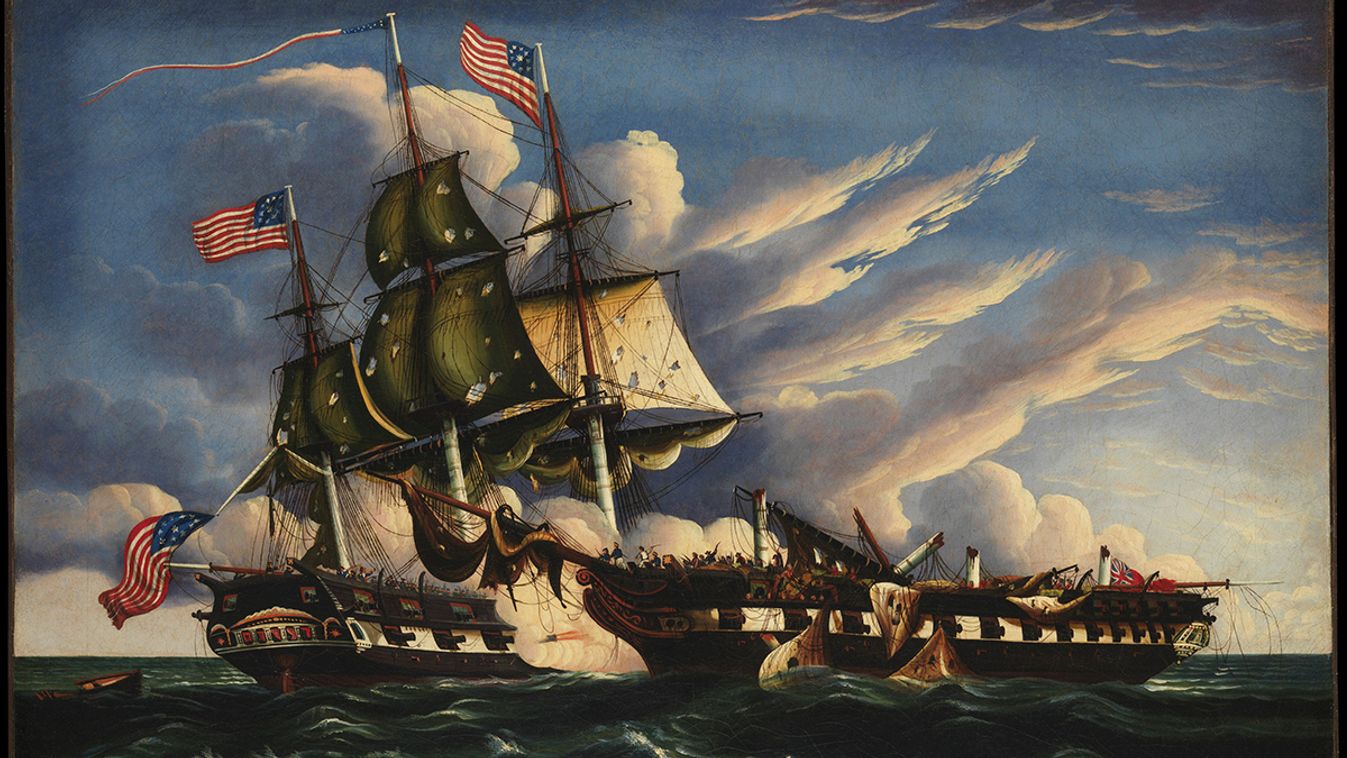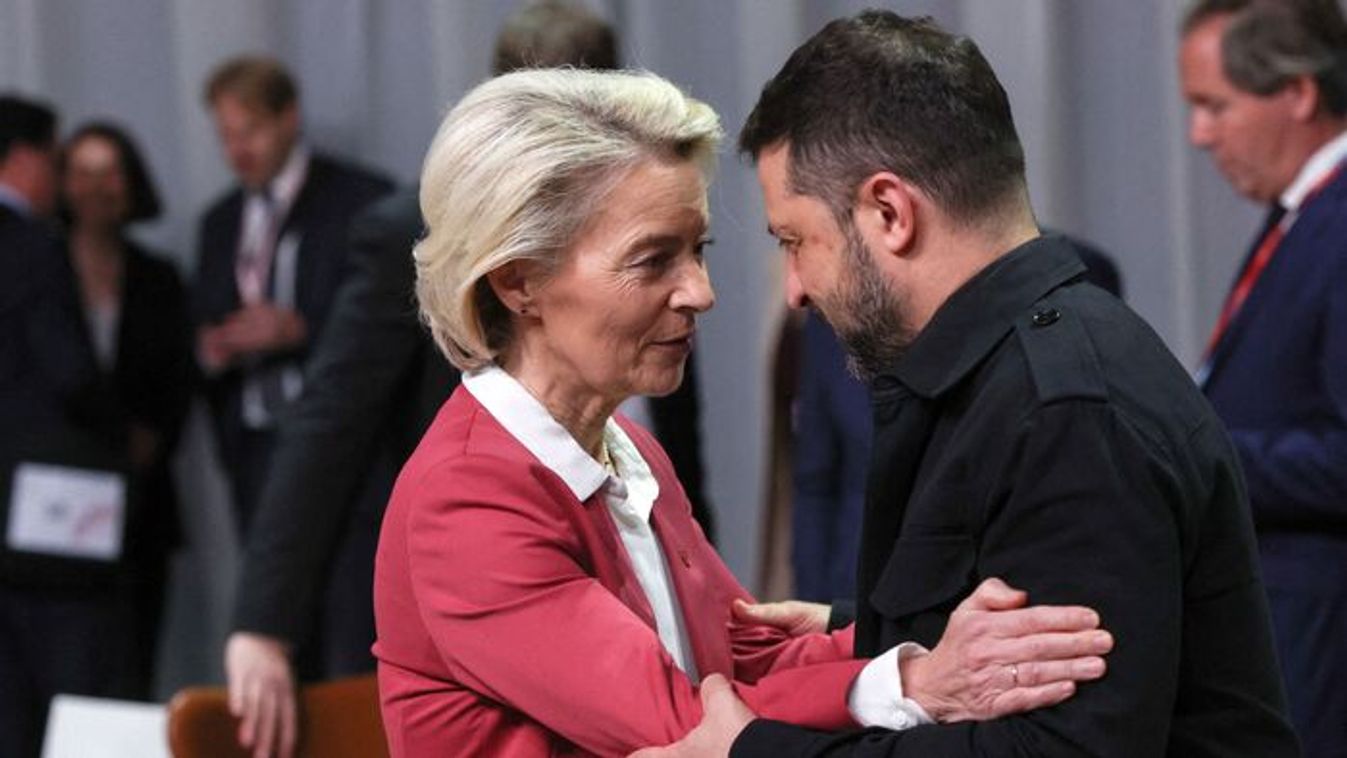Csak két perc: videón a legdurvább ukrán fenyegetések Zelenszkijtől a rettegett ukrán őrnagyig

Magyarország katonai megszállásától a választási eredmények megtámadásáig – minden belefér az EU-s csatlakozást követelő ukrán megszólalók szerint.

“If put into print and translated into other languages, texts of this sort could also be used to publicize a country’s legal and political system across borders, and put a particular polity on the map” – Linda Colley pointed out in a conversation with Lénárd Sándor.

Constitutional lawyers see constitutions as a legal text, albeit a fundamental one. However, in your recently published book “The Gun, the Ship, and the Pen: Warfare, Constitutions, and the Making of the Modern World” you look at constitutions as a historical phenomenon. What is unique in the perspective that you reveal?
There are many ways in which these very important texts can and should be looked at. Normally, they are examined within the context of particular nations or territories and interpreted in accordance with local legislative traditions and practices. But what I tried to address in my book was how and when constitutions spread into different parts of the world, and how these different documents have tended to influence each other.

Constitution makers have often been borrowers.
For example, the drafters of the Norwegian constitution in 1814 had to put it together in six weeks because of an imminent military threat from Sweden. As a result, they borrowed provisions and sometimes whole paragraphs from other countries’ constitutions. And its not only wording and legislative provisions that have sometimes been borrowed in this way. So, too, often have ideas about how to implement and publicize a constitution.

The Constitution of the United States is usually seen as the first emblematic attempt of framing a written constitution. However, in your book you shed light on other interesting chapters such as Corsica with its pioneering constitution of 1755 and the constitutional experiences of Catherine the Great of Russia. What do these historical experiences reveal?
I first became interested in constitutions when I moved to teach in the United States in 1982. As you say, there is a strong patriotic cult of the constitution there, which I wanted to re-appraise and shake up slightly. You can already see elements of new kinds of written constitutionalism evident in the 17th century. However, these instruments really start taking off from the mid 18th century, largely
because of war, the ideas of the Enlightment and the spread of the print.
The rebel leaders of Corsica produced a very interesting and (for men) a very democratic constitution in 1755. Catherine the Great of Russia is another example. She herself was an usurper and Russia had been heavily and expensively involved in the Seven Years War. Accordingly, Catherine wanted to reestablish the Russian empire and also firmly establish herself. In the 1760s, she therefore drafted a very interesting document, the “Nakaz”. This was not a political constitution, but Catherine made use of strategies that were going to be exploited and developed in later documents that were constitutions, such as staging a special convention, and publishing her new document in lots of different languages. So, the men in Philadelphia in 1787 are not total innovators, but rather part of a wider zeitgeist, which encompasses many parts of the then Western world.
One of your major themes in your book is that not only enlightenment and liberalism but war and sovereignty have also played a significant role in the global spread of constitutions. Can you explain this aspect of the growth of written constitutions?
I put considerable stress on the importance of the changes in the nature of warfare. Not in order to do down the impact of the Enlightment, but rather to consider the other elements involved in these constitutional evolutions. By the mid-18th century, wars were getting much bigger, often encompassing multiple continents and therefore involving maritime as well as land forces. This proved very expensive, especially for the major players who had to mobilize ever larger navies as well as big armies. For lots of rulers, this posed a challenge: how were they raise and afford the necessary number of fighting men and taxes. New constitutional documents therefore emerge in part so as
to provide for a new kind of contract with the ruled.
Wider rights and civil opportunities are offered to male populations in return for their fulfilling their civic and military obligations. As Montesquieu argues, the countries that can raise the most taxes are those which also strive to increase liberties in some way.
Another historical experience is that constitutions were adopted in order to resist hegemonic powers, such as the European or American powers throughout the 19th century. This way constitutions could help put a polity on the map showing its desire for modernity and independence. How do you see this aspect of constitutions and what examples illustrate this?
I think this is a really intriguing aspect of the proliferation after 1750 of new kinds of constitutional texts. Rulers and activists within states increasingly realized that a constitutional document need not just be for purely domestic consumption. If put into print and translated into other languages, texts of this sort could also be used to publicize a country’s legal and political system across borders, and put a particular polity on the map. Consequently,
as constitutions came to be seen more and more as trademarks of a modern state,
more and more polities jumped on the bandwagon. The American revolutionists did this after 1776. So, subsequently, did many small territories which feared - often with cause - that they were going to be invaded or taken over or colonized. A technique vulnerable territories of this sort often adopted was to draft a new political constitution, then publish it and export translations to different parts of the world, thereby proclaiming their autonomous political identity and right to exist. Of course, this did not always work for very long. Hawaii, for example, rightly feared that it was going to be taken over by either by European or American colonizers. Accordingly, from 1840, its rulers drafted a series of political constitutions and sent them around the world. The Americans finally moved into Hawaii in the 1890s. Nonetheless, its constitutions turned out to be an important delaying strategy. Another example is Tunisia which produced the first modern Islamic constitution in 1861, in the forlorn hope of keeping the French at bay. You see Japan adopting a similar strategy with its constitution of 1889, the first ever inaugurated in East Asia. This time though the strategy really did succeed.
Japan used this new constitution very adroitly
to present itself to the world as a thoroughly modern and assertive polity.
The United Kingdom does not have a codified constitution, instead it has a historical constitution. However, it may prove more resistant or hard-headed than the a codified one. How do you see this?
The British experience is a rather ironic one. Back in 1653, a short-lived British Republic dominated by Oliver Cromwell did issue a pioneering codified constitution. But the monarchy was restored in 1660, and Britain has not had a codified constitution since then. Arguably, Britain has had less need to institute such a document than most of its neighbours because, since the 17th century, it has never experienced an all-encompassing civil war, or a successful revolution or foreign invasion obliging it to transform its government. This comparative freedom from existential challenges has allowed Britain to continue without having to codify its constitution. How long this will remain the case, we will have to see.